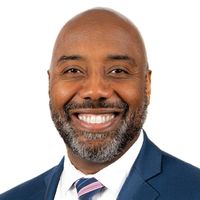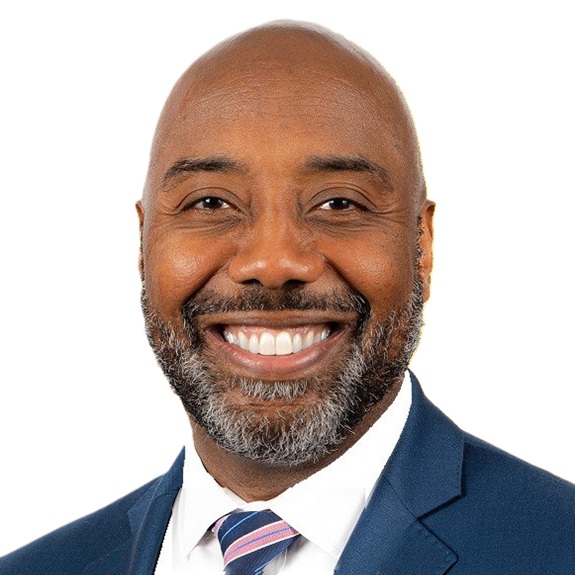10 Questions to Help You Decide if You’re Really Ready to Retire Early
More and more of us are thinking about retiring early. The key is making sure we’re properly prepared. Here are 10 key questions to ask yourself.


Profit and prosper with the best of Kiplinger's advice on investing, taxes, retirement, personal finance and much more. Delivered daily. Enter your email in the box and click Sign Me Up.
You are now subscribed
Your newsletter sign-up was successful
Want to add more newsletters?

Delivered daily
Kiplinger Today
Profit and prosper with the best of Kiplinger's advice on investing, taxes, retirement, personal finance and much more delivered daily. Smart money moves start here.

Sent five days a week
Kiplinger A Step Ahead
Get practical help to make better financial decisions in your everyday life, from spending to savings on top deals.

Delivered daily
Kiplinger Closing Bell
Get today's biggest financial and investing headlines delivered to your inbox every day the U.S. stock market is open.

Sent twice a week
Kiplinger Adviser Intel
Financial pros across the country share best practices and fresh tactics to preserve and grow your wealth.

Delivered weekly
Kiplinger Tax Tips
Trim your federal and state tax bills with practical tax-planning and tax-cutting strategies.

Sent twice a week
Kiplinger Retirement Tips
Your twice-a-week guide to planning and enjoying a financially secure and richly rewarding retirement

Sent bimonthly.
Kiplinger Adviser Angle
Insights for advisers, wealth managers and other financial professionals.

Sent twice a week
Kiplinger Investing Weekly
Your twice-a-week roundup of promising stocks, funds, companies and industries you should consider, ones you should avoid, and why.

Sent weekly for six weeks
Kiplinger Invest for Retirement
Your step-by-step six-part series on how to invest for retirement, from devising a successful strategy to exactly which investments to choose.
Thinking about retiring early? We’ve put together a list of key early-retirement questions to ask yourself to find out if you’re ready.
According to a report by the Federal Reserve Bank of New York last year, nearly half of Americans expect to retire before they turn 62, a two-point rise on prepandemic levels.
And you can see why. Long walks. Even longer lunches. Time with the grandkids. Vacations. Golf. Retiring early can promise all kinds of opportunities and benefits. But it also carries some risks, as it means your nest egg will need to last longer and adjust to a wider variety of fluctuations in your own life and in the economy overall.
From just $107.88 $24.99 for Kiplinger Personal Finance
Become a smarter, better informed investor. Subscribe from just $107.88 $24.99, plus get up to 4 Special Issues

Sign up for Kiplinger’s Free Newsletters
Profit and prosper with the best of expert advice on investing, taxes, retirement, personal finance and more - straight to your e-mail.
Profit and prosper with the best of expert advice - straight to your e-mail.
It’s therefore vital to ensure you’re fully prepared, both financially and emotionally, which is exactly where the following 10-point checklist can help. But, warning! There are no C grades in early retirement. Unless you can answer “yes” to at least eight of these questions, you may want to consider holding off on writing that resignation letter just a little while longer.
1. Do You Have a Long-Term Care Plan?
Whether it’s due to illness or old age, there’s a strong chance that one day you’ll have to finance a period of medical support for you and/or a loved one. Which means you need a clear plan for how to pay for long-term care as part of your early-retirement fund.
2. Are You Debt-Free?
From credit cards and car notes to mortgages and other bank loans, having to pay off significant debts, including any interest, is a drain on your nest egg. You should clear any significant fixed outgoings from your life before saying goodbye to your salary.
3. Are Your Dependents Independent?
From kids going through college to elderly parents needing support with medical costs, you may have various people in your life who depend on you financially. It’s best to wait until the majority of them are financially independent before you retire.
4. Do You Have a Stress-Tested Financial Plan?
A written financial plan must clearly set out how your nest egg will cover your expected expenses in retirement. A qualified financial adviser can then run a Monte Carlo simulation, stress-testing that plan through different possible scenarios to reveal whether it’s up to the job.
5. Do You Have a Trusted Sounding Board?
Whether it’s a professional, a colleague or a friend, find someone you can rely on for smart, objective financial advice, ideally from outside your network of dependents. The same person can also provide invaluable decision-making support if you’re ever faced with being no longer of sound mind.
6. Are Your Legal Documents in Order?
As well as a will and health care directives, you should get a power of attorney in place. This gives someone you trust the ability to make financial decisions on your behalf if you become temporarily or permanently incapable. Name a back-up, too, in case your first choice (for most of us, our partner) passes before you.
7. Do You Have a Passion Project?
One of the biggest issues in retirement can be depression. Suddenly, you go from running 100 miles an hour to feeling like you’re twiddling your thumbs. And no amount of golf, needlework or Netflix can fill the gap! Passion projects fire our engines as human beings, so ensure you have something to engage you mentally, emotionally and physically when work’s no longer part of your life.
8. Can You Replace Your Paycheck?
Without a salary, you’ll need to use your nest egg to create a regular income stream to cover your expenses. That’s where fixed-income-oriented instruments, such as dividend-paying stocks and annuities, come in. Ideally, you should use these to reliably cover 70% to 85% of your former paycheck.
9. Have You Adjusted for Inflation?
Inflation runs at an annual average of 3%, which means your cost of living will be much higher in the future than on the day you retire. Remember to adjust for this increase when assessing the value of your retirement fund. Or put another way, as well as replacing your paycheck, ensure you’re able to give yourself a 3% raise every year, too!
10. Are You Investing for the Long Term?
Most of us become more financially conservative as we approach the end of our working life. But as an early retiree, you need to know your investments will keep delivering returns for 30 years or more.
Even when the markets are volatile and the temptation to be risk-averse is greatest, try to keep a 70/30 or even 60/40 split between safer, fixed-income investments and those with higher equity risk but higher potential long-term rewards. All being well, you’ll need them!
Profit and prosper with the best of Kiplinger's advice on investing, taxes, retirement, personal finance and much more. Delivered daily. Enter your email in the box and click Sign Me Up.

Stephen Dunbar, Executive Vice President of Equitable Advisors’ Georgia, Alabama, Gulf Coast Branch, has built a thriving financial services practice where he empowers others to make informed financial decisions and take charge of their future. Dunbar oversees a territory that includes Georgia, Alabama and Florida. He is also committed to the growth and success of more than 70 financial advisers. He is passionate about helping people align their finances with their values, improve financial decision-making and decrease financial stress to build the legacy they want for future generations.
-
 Dow Adds 1,206 Points to Top 50,000: Stock Market Today
Dow Adds 1,206 Points to Top 50,000: Stock Market TodayThe S&P 500 and Nasdaq also had strong finishes to a volatile week, with beaten-down tech stocks outperforming.
-
 Ask the Tax Editor: Federal Income Tax Deductions
Ask the Tax Editor: Federal Income Tax DeductionsAsk the Editor In this week's Ask the Editor Q&A, Joy Taylor answers questions on federal income tax deductions
-
 States With No-Fault Car Insurance Laws (and How No-Fault Car Insurance Works)
States With No-Fault Car Insurance Laws (and How No-Fault Car Insurance Works)A breakdown of the confusing rules around no-fault car insurance in every state where it exists.
-
 For the 2% Club, the Guardrails Approach and the 4% Rule Do Not Work: Here's What Works Instead
For the 2% Club, the Guardrails Approach and the 4% Rule Do Not Work: Here's What Works InsteadFor retirees with a pension, traditional withdrawal rules could be too restrictive. You need a tailored income plan that is much more flexible and realistic.
-
 Retiring Next Year? Now Is the Time to Start Designing What Your Retirement Will Look Like
Retiring Next Year? Now Is the Time to Start Designing What Your Retirement Will Look LikeThis is when you should be shifting your focus from growing your portfolio to designing an income and tax strategy that aligns your resources with your purpose.
-
 I'm a Financial Planner: This Layered Approach for Your Retirement Money Can Help Lower Your Stress
I'm a Financial Planner: This Layered Approach for Your Retirement Money Can Help Lower Your StressTo be confident about retirement, consider building a safety net by dividing assets into distinct layers and establishing a regular review process. Here's how.
-
 The 4 Estate Planning Documents Every High-Net-Worth Family Needs (Not Just a Will)
The 4 Estate Planning Documents Every High-Net-Worth Family Needs (Not Just a Will)The key to successful estate planning for HNW families isn't just drafting these four documents, but ensuring they're current and immediately accessible.
-
 Love and Legacy: What Couples Rarely Talk About (But Should)
Love and Legacy: What Couples Rarely Talk About (But Should)Couples who talk openly about finances, including estate planning, are more likely to head into retirement joyfully. How can you get the conversation going?
-
 How to Get the Fair Value for Your Shares When You Are in the Minority Vote on a Sale of Substantially All Corporate Assets
How to Get the Fair Value for Your Shares When You Are in the Minority Vote on a Sale of Substantially All Corporate AssetsWhen a sale of substantially all corporate assets is approved by majority vote, shareholders on the losing side of the vote should understand their rights.
-
 How to Add a Pet Trust to Your Estate Plan: Don't Leave Your Best Friend to Chance
How to Add a Pet Trust to Your Estate Plan: Don't Leave Your Best Friend to ChanceAdding a pet trust to your estate plan can ensure your pets are properly looked after when you're no longer able to care for them. This is how to go about it.
-
 Want to Avoid Leaving Chaos in Your Wake? Don't Leave Behind an Outdated Estate Plan
Want to Avoid Leaving Chaos in Your Wake? Don't Leave Behind an Outdated Estate PlanAn outdated or incomplete estate plan could cause confusion for those handling your affairs at a difficult time. This guide highlights what to update and when.